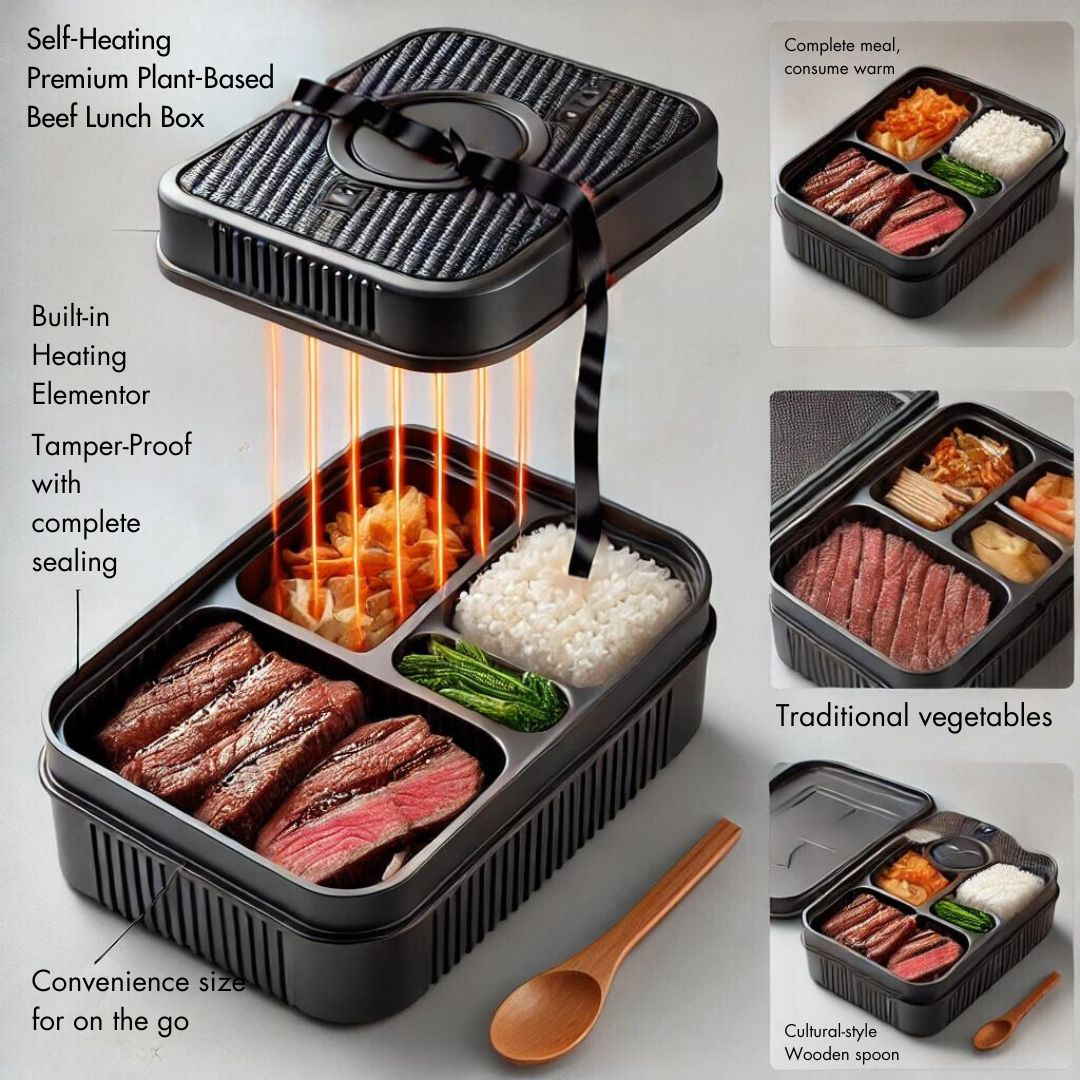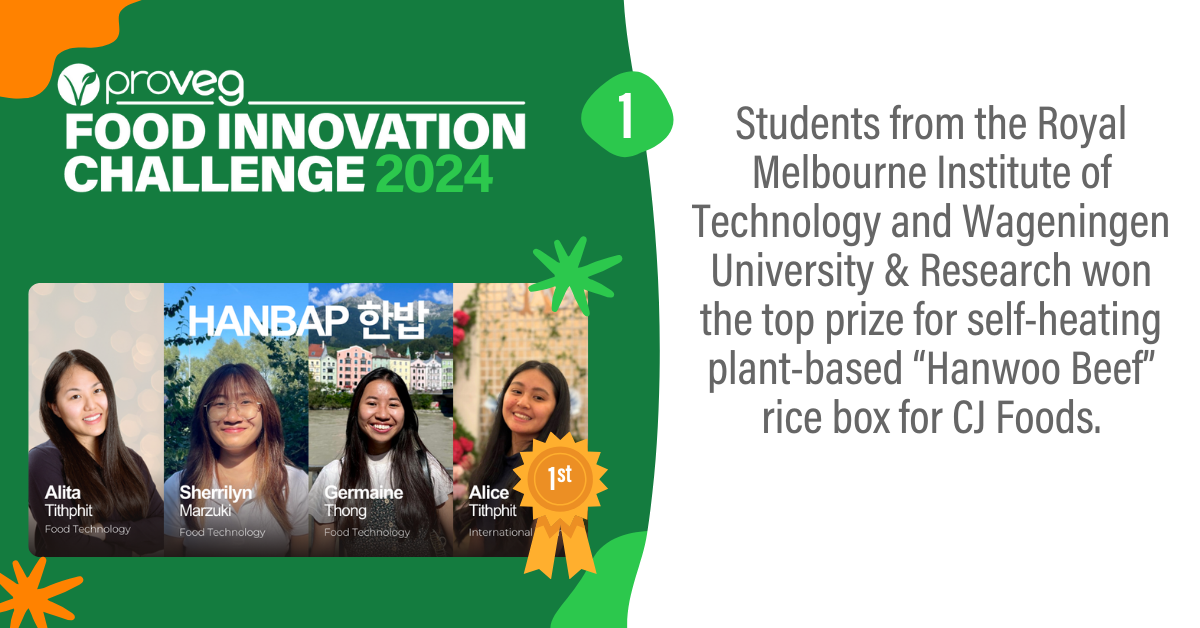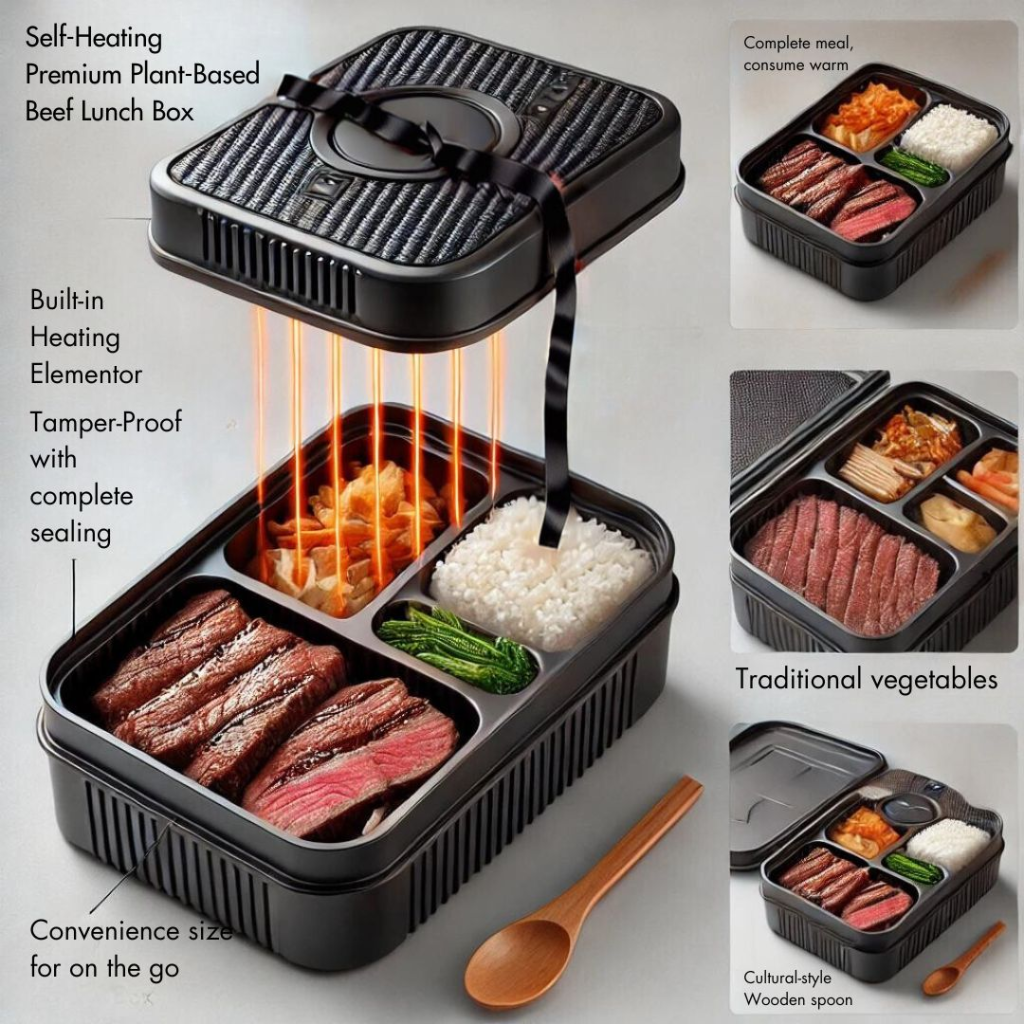Self-heating, plant-based “Hanwoo Beef” rice box wins Asia-Pacific food innovation contest
Prize money totalling $15,500 awarded in 5th annual ProVeg Food Innovation Challenge
A self-heating, plant-based food box featuring “Hanwoo beef”, rice and vegetables devised by students from Australian and Dutch universities has won the top prize of $3,000 in an Asia-Pacific-wide food contest.

The winning team, from Australia’s Royal Melbourne Institute of Technology and the Netherlands’ Wageningen University, entered the rice box into the 5th edition of the ProVeg Food Innovation Challenge.
The contest is held in conjunction with major food companies and it was Korea-based CJ Foods that threw down the gauntlet to students to develop a sustainable and convenient version of Hanwoo beef, one of the rarest and more expensive beef cuts due to its high marbling.
The winning team from Australia and the Netherlands duly delivered with a beef made from textured pea protein in a box with a built-in heating element activated by the pull of a string.
Three second prize winners came up with a plant-based Peking Duck Wrap Kit, a seafood flavoured rice dressing made from microalgae and innovative, ready-to-eat “Bomb Bites”.
Third prize winners developed ideas for plant-based lamb with marbling from duckweed, a sticky rice using plant-based shrimp and tuna, and plant-based octopus legs.
“This year’s Food Innovation Challenge has showcased the remarkable creativity and determination of students from across the globe,” Shirley Lu, Managing Director of ProVeg Asia, said.
“With innovative ideas like plant-based solutions for iconic dishes such as Peking Duck and Dongpo Pork, and the use of diverse local ingredients like mung beans, microalgae, and fungi, participants have demonstrated that collaboration knows no boundaries,” Lu said.
“By fostering partnerships between students from regions such as China and Australia, Vietnam and Germany, and beyond, we are accelerating the development of sustainable and inclusive food systems. Together, we’re proving that the future of food innovation is not only green but also global,” Lu added.

How the Challenge has changed
This year’s entries have explored uncharted, high-impact markets such as plant-based lamb, using innovative local ingredients like mung beans, konjac, and rice bran.
Iconic local dishes have been reimagined to create plant-based versions of beloved traditional favourites such as Peking Duck, Dongpo Pork, and Hanwoo Beef, offering a modern twist on familiar flavours.
This year’s Challenge also showcased a wider range of local protein sources, including microalgae, mung beans, duckweed, fungi, and wolffia, alongside more common ones like soy and peas.
The campaign has also evolved to foster collaboration between Asian students and their counterparts overseas or locally in other regions. This cross-border sharing of ingredients and technologies is expected to accelerate the development of green food innovations in Asia and beyond. Notable collaborations include teams from China and Australia, China and Malaysia, Vietnam and Germany, France and Australia, and with the champion team this year from Australia and the Netherlands.
Partner companies
This year’s ProVeg Food Innovation Challenge, now in its fifth year, was launched on 1 September 2024 and continues to inspire university students across the Asia-Pacific region to address global challenges through innovative food solutions.
Eight partner companies, including leading multinational corporations and regional companies, were involved in spurring on new ideas for products from their existing range. They were Unilever, Mars, Beyond Meat, CJ Foods, CPF, DaChan, Monde Nissin, Thai Union.
“Through this challenge, we see a growing concern and passion among young people for sustainability,” Xiao Xia, Associate Director of Mars China, said.
“It is inspiring to witness their proposals leveraging Asia’s rich diversity and potential in plant proteins. The combination of youth enthusiasm and local resources holds great promise for advancing the development of plant-based foods in the region,” Xia added.
The judging criteria
The finals of the competition, held on 6 January, showcased ideas from a total of 28 teams of students who are currently enrolled in undergraduate or graduate programmes at universities and colleges.
The judging criteria was based 30% on the product’s market potential, 30% on its uniqueness, 20% on its feasibility and 20% on its go-to-market strategy.
In total, 452 proposals were submitted by 1,350 students from 151 universities across more than 20 countries.
Chinese universities such as Zhejiang University, Jiangnan University, Ocean University of China, Beijing Technology and Business University, Tsinghua University and Shanghai Jiaotong University took part.
Across the Asia Pacific region, and outside of China, top universities such as the National University of Singapore, Indonesia’s Institute Pertanian Bogor University, Australia’s University of Queensland , and University Putra Malaysia, Thailand’s Kasetsart University and Singapore’s Nanyang Technological University.



